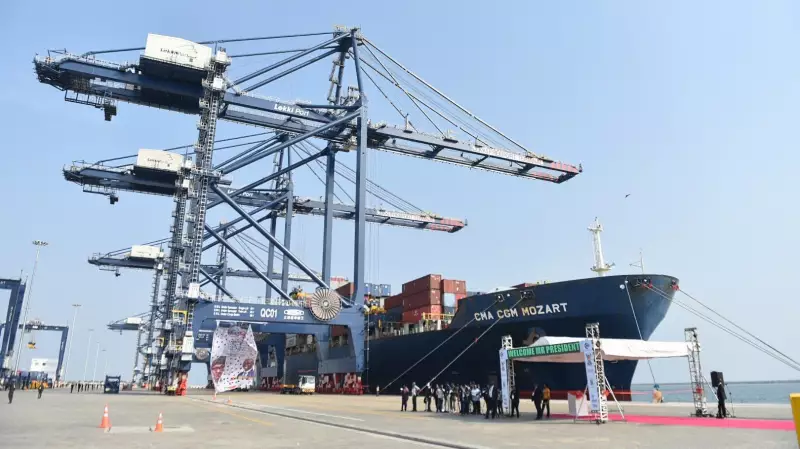
The Nigerian Ports Authority (NPA) has raised serious concerns about the alarming underutilisation of the state-of-the-art Lekki Deep Sea Port, revealing that Nigerian businesses are failing to take advantage of what should be a game-changing infrastructure project for the nation's economy.
Africa's Deepest Port Sitting Idle
Despite being the deepest seaport in Africa with the capacity to handle the world's largest container ships, the Lekki Deep Sea Port is experiencing surprisingly low patronage from local importers and exporters. This revelation comes as a major disappointment to stakeholders who had anticipated the facility would revolutionize Nigeria's maritime operations.
NPA's Frustration Grows
NPA officials have expressed growing frustration at the situation, noting that the lack of utilization represents a significant missed opportunity for the Nigerian economy. The port, which was designed to ease congestion at older facilities like Apapa and Tin Can Island ports, continues to see minimal activity from domestic businesses.
What's Holding Nigerian Businesses Back?
Industry experts point to several potential factors contributing to this underutilisation:
- Inertia and familiarity with existing port facilities
- Logistical challenges in adapting to new operational procedures
- Awareness gaps about the benefits and capabilities of the new port
- Infrastructure connectivity issues surrounding the Lekki corridor
Economic Implications for Nigeria
The underperformance of this critical infrastructure represents more than just a statistical concern—it has real consequences for Nigeria's economic competitiveness. The Lekki Deep Sea Port was envisioned as a catalyst for reducing shipping costs, improving efficiency, and positioning Nigeria as a regional maritime hub.
"When we invest in world-class infrastructure and our own people don't use it, we have to ask serious questions about our economic priorities and business readiness," a maritime industry analyst commented.
Call to Action
The NPA is now intensifying efforts to engage with the business community, highlighting the competitive advantages of using the Lekki facility. These include faster turnaround times, deeper berths for larger vessels, and modern equipment that can significantly reduce cargo handling costs.
As Nigeria continues to grapple with economic challenges, the full utilization of strategic assets like the Lekki Deep Sea Port could be crucial in unlocking new growth opportunities and strengthening the country's position in global trade networks.






